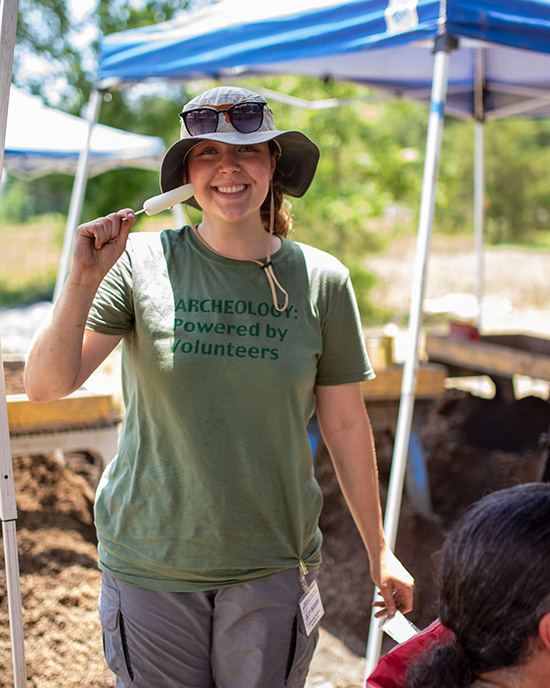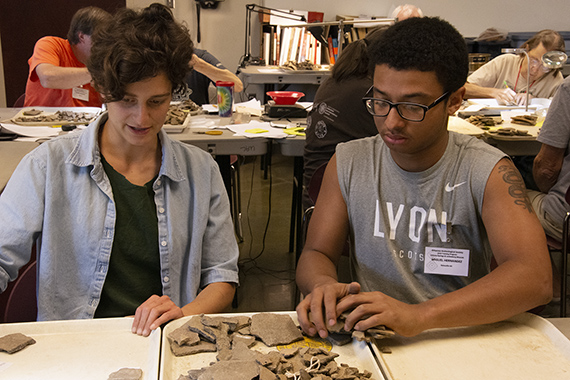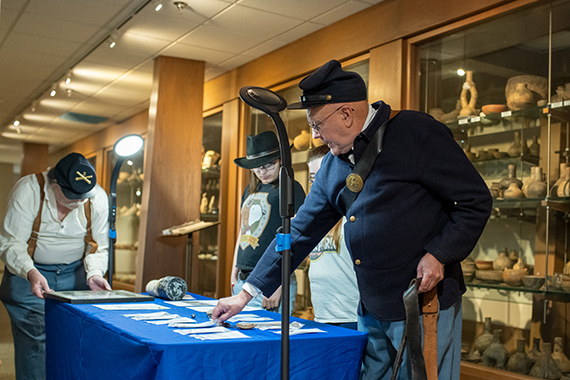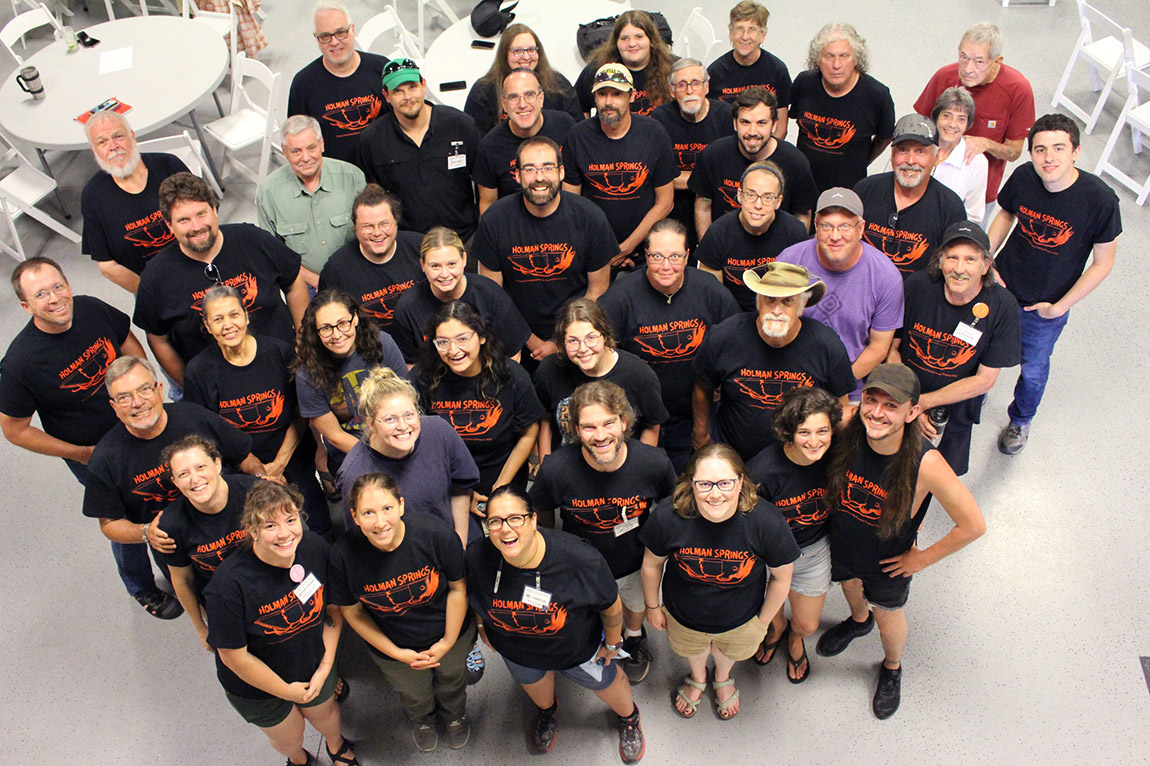Gillian (Steeno) Bjornen, Arkansas Archeological Survey
"Archeology is..." series - June 2024

Often when people think of volunteering or giving their time to an organization, they do not think about getting their hands dirty in the traditional sense. Usually, their minds automatically go to volunteering at a food pantry or at the local animal shelter. These opportunities offer a connection with the local community or animals in need. Sometimes, you might even make friends in the hours, weeks, or even years you spend donating your time and energy in serving these organizations.
People outside of the world of archeology may not realize that volunteering has been an essential part of archeological research and excavation, especially in the state of Arkansas. The Arkansas Archeological Society (AAS), founded in 1960 for the purposes of uniting individuals interested in archeology and preserving Arkansas’ past, was (and is) the flagship non-profit archeological volunteer organization in the state. It would be another seven years until the Arkansas Archeological Survey (ARAS) was officially established in 1967; then, the two organizations partnered to offer professional training to best equip volunteers with the knowledge and skills to properly excavate and document archeological sites as part of an ARAS research project. At the AAS’s inception, trained volunteers were needed to help during salvage projects where archeological sites were in danger of being destroyed. In this way, ARAS archeologists could rely on trained avocational archeologists to aid in collections management and field work.
Today, the Society is made up of about 400–500 members who each have an individual connection with and an interest in archeology. Some members are professional archeologists, but many are citizens who made their careers in other fields like accounting, higher education, automotive manufacturing, and history just to name a few. Having members with varied interests and experiences contributes to a volunteer base with knowledge spanning many areas of archeological research and inquiry. This knowledge includes not just work in the field, but in the lab as well–washing, sorting, and cataloging artifacts. Volunteer opportunities include weekly Lab Days at ARAS research station locations, monthly local chapter meetings, the annual Training Program in Archeology (happening this month), and other one-time events.


One of our major events happening right now is the Training Program in Archeology, which is our biggest event of the year held during the first two weeks in June. Volunteers give their time, anywhere from one day up to the full two weeks, to assist with the excavation and lab processing components of that year’s research project developed by the Dig Director (an ARAS Station Archeologist). Even if you’ve never picked up a trowel before and do not know how to draw a wall profile, we welcome everyone who is willing to learn! For those who are interested in special topics in archeology, there are seminars, or five-day courses, taught by ARAS archeologists and qualified Society members to enhance the amount of information available during the program. Evening talks are also offered throughout the two-week program where speakers, sometimes from out-of-state, are invited to present on their research and career experience. The program is a fundamental part of the Society, and an instrumental way for volunteers to stay connected and consistently participate in archeological research in a hands-on way. Without the work of volunteers, we would not be able to hold the Training Program each summer. We also engage with members of the public, teachers, and other stakeholders throughout the program to foster local engagement and participation even if they are unable to commit time to volunteer.
The best way to preserve Arkansas’s history, and the archeological information left behind by past peoples, is to engage the public and to inform people about the importance of archeology in their daily lives. Even if someone volunteers during a day of the AAS Training Program, comes to an Archeology Month event, or comes to one local chapter meeting, they are engaging with archeological information that they can then pass on to family members, friends, and colleagues. Volunteering is the next step after initial interest in archeology and recognizing the importance of past peoples’ culture. There is so much to learn, and archeological research today offers opportunities for community members to be involved in preserving the past for the future. Volunteers are still essential to archeological research in Arkansas, and the amount of work we do each year would not be possible without them. If you’re interested in getting involved, visit the Arkansas Archeological Society’s website to learn more about the events we put on throughout the year.

